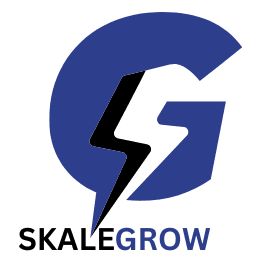This article was originally published in the Elevate Your Marketing newsletter and has been repurposed and republished here with the author’s permission. Here is the link to the original article.
If any marketer or lead generation specialist tells you that they have exhausted all their ideas to generate leads, that’s because they have not been looking at the right place.
But not anymore.
In this blog post, I discuss 9 lead gen techniques for B2B that most of you are not probably using. And I am sure you wouldn’t have even heard about a few on the list.
No more hype. Let’s get started.
B2B lead generation techniques for explosive growth
Here is the list of all the 9 lead generation techniques for B2B we will be discussing today:

Lead generation techniques for B2B
- Direct mail
- Buyer resolution and visitor tracking
- Pre-filled forms for better conversion
- LinkedIn automation and prospecting
- Media websites and magazines
- Converting video viewers into leads
- Exit popup forms
- User generated content
- OOH (Out Of Home) advertising
Let’s delve deep into each of these.
1. Direct mail – B2B lead generation technique for new-age businesses
If you have been following Skalegrow’s content, you know that we are a big fan of direct mail. It is an excellent way for you to stand out among the ‘digital noise’. It combines the best of digital and physical mail to help you send customized communications at scale.
One of my favorite tools that can do this is Sendoso. Check out the below video from Sendoso to understand how this works:
Some of the other tools using which you can do this are The MailWorks, Reachdesk, and Postal.io.
Related: B2B Lead Qualification Methods To Improve Lead Quality
2. Buyer resolution and visitor tracking
If you are in the ABM (Account Based Marketing) space, you are probably familiar with buyer resolution. It is nothing but the process of identifying people visiting your website.
While some tools can identify only people who have submitted their information on your website before, a few others can do it even for those who haven’t. Kwanzoo is an example of such a tool. It is a complete ABM suite that has buyer resolution as one of its key features.
One thing to note here is that owing to GDPR, people from the EU (European Union) cannot be identified. People identification is mostly limited to the US.
However, you can still identify the accounts visiting your profile using visitor tracking tools like Kwanzoo or Leadfeeder. If you want to take your analytics to the next level to understand the journey of these accounts, consider using a marketing analytics and attribution tool like Factors AI.
3. Pre-filled forms
As the term suggests, a pre-filled form refers to automatically filling the information of the user so that the time he/she has to spend filling it is significantly reduced. This in turn leads to higher conversions and ensures that you don’t miss quality leads just because your form is too long.
Clearbit is a tool that can help you with this. Have a look at this article to understand how this works on the platform.
4. LinkedIn automation as a B2B lead generation technique
LinkedIn automation is a technique that has become popular in recent years. LinkedIn automation tools like Dripify allow you to automatically connect and send messages to your ideal customers. You can also set up automated workflows for follow-ups.
To understand how this works, watch the below video from Dripify:
There is one thing you need to keep in mind while using a LinkedIn automation tool.
Though the creators of these tools claim that they distribute your activity on LinkedIn in a way that they aren’t tagged as automation, it is always recommended to have manual control over the campaigns you do. For example, make sure you send connection requests and messages only to a limited set of people a day. This will ensure that LinkedIn doesn’t block your account.
Also read: How To Create Content For LinkedIn Organic Marketing [With 10+ Examples And 5 Templates]
5. Media websites and magazines
This refers to campaigns you do by leveraging the audience of third-party media companies and magazines in your niche. For example, if you are in the automation space, The Association For Advancing Automation is a great example of a media website where you can run multiple promotions.
These media websites and online magazines offer various kinds of services including events, networking, newsletter campaigns, product endorsements, banner ads, business listings, and much more.
This technique is recommended for companies that have reached a certain level of maturity and wish to scale the business to the next level. This is because these media and promotional services are usually expensive and hence are not budget-friendly. Hence, startups and early-stage companies might not find it as suitable as mid-size to large companies.
6. Converting video viewers into leads
This is a method you should definitely use if:
- You have good traffic to your website.
- You have a lot of videos on your website
This method involves using specialized video hosting tools that enable you to collect the email IDs of video viewers on your website. A form pops up while a viewer is watching a video requesting to fill out their information for them to continue watching it.
This is usually done only when a user watches the video the second time in order to avoid annoyance and ensure clear intent.
A tool that can help you do this is Hippo Video. Visit this article to learn more about this.
7. Exit popup forms
This is something I had discussed in one of Skalegrow’s newsletter editions (check it out here).
Exit intent popups are forms or banners that pop up when a user is about to leave a website. You can configure different types of campaigns using exit popups such as spinning wheels, a referral campaign, or even a discount code.
You can do this manually. However, using a tool like OptinMonster or Qualaroo makes the process completely no-code. These platforms will also give you the necessary analytics to measure the success of your campaigns.
Watch this video to learn more about how this works.
8. User-generated content
We have discussed user-generated content in one of the previous blog posts in detail. Whether it’s in the form of reviews, testimonials, communities, or collaborative webinars, user-generated content is a scalable way of generating B2B leads for your business.
Make sure to read our article below on the topic to discover all the ways in which you can leverage user-generated content:
Leveraging User-generated Content in B2B [Beyond Case Studies]
9. OOH (Out Of Home) advertising
Out-of-home advertising today involves combining digital technology and billboards to show ads to the most relevant people. Though not as common and effective as in the case of B2C businesses, OOH advertising can still be a powerful tool for B2B businesses.
Let me explain.
You might have heard about Zoho experimenting with offline ads way back in 2010 (check out the details here). The idea behind the campaign was to pick locations where the most affluent or business class would hang out – such as airports.
There are companies like Vistar Media that offer OOH advertising services with the ability to control various parameters such as location and duration. So if you are looking to give an extra boost to your business’s reach, this is worth considering.
At the same time, I would recommend to give this a try only after you have exhausted the other channels for multiple reasons:
- OOH advertising can be expensive depending on the location and type of digital signage you go for.
- The targeting options for B2B are limited. You don’t know the people or even accounts that are exposed to your ads. While some vendors have people counting enabled in their signages, in most cases you wouldn’t know how many people saw the ads.
- It’s not possible to track how many leads have been generated from this method. You can overcome this to some extent by adding a field on your website form asking: “How did you hear about us?” This still isn’t a perfect method of lead attribution for this channel.
In essence, make your choice wisely.
Final words about unconventional B2B lead generation
Not every method discussed in this blog post will be suited for your business. Evaluate them carefully and ensure that they make business sense. You can primarily consider two factors here:
- The effectiveness and relevance of the channel or technique for your industry.
- The budget you need to allocate for it and the expected ROI.
It is also a good idea to not go all in with too many channels. A best practice is to experiment with 1 or 2 methods, make them work, and expand to the others. As I always say, there is no ‘one size fits all’ approach in marketing. So be sure to always apply the lens of your business while trying to implement generic advice.
Skalegrow – B2B marketing agency
With marketing getting tougher and tougher, every wrong foot you make might hamper your growth. What you need is the right guidance and a helping hand. This is where Skalegrow can make a sea of difference.
Skalegrow helps IT, tech, SaaS, and embedded systems companies leverage new-age marketing tactics to grow their business. Check out the below intro video to learn more about what Skalegrow brings to the table:
Our services include content marketing, SEO, graphic design, video marketing, LinkedIn marketing, email marketing, performance marketing, and website management. Write to us at info@skalegrow.com, or visit our services page for more details.
About the author

Naseef KPO is the Founder and CEO of Skalegrow. He comes with rich experience across multiple areas of B2B marketing including content marketing, demand generation, SEO, account-based marketing, marketing analytics, revenue attribution, marketing technology, etc. He writes thought-provoking and relevant articles on The Skalegrow Blog and his weekly LinkedIn newsletter Elevate Your Marketing.
Prior to starting Skalegrow, Naseef led large marketing teams in multi-million dollar B2B organizations where he made significant contributions to the topline growth of the business. He has also appeared on numerous podcasts where he shared his thoughts on trending marketing topics such as the application of AI in marketing, startup marketing, ABM, and B2B content marketing, just to name a few. Being the founder of Skalegrow, he is currently focusing on helping its clients stay ahead of their competition by using innovative yet practical marketing tactics.
You can connect with Naseef KPO on LinkedIn.


